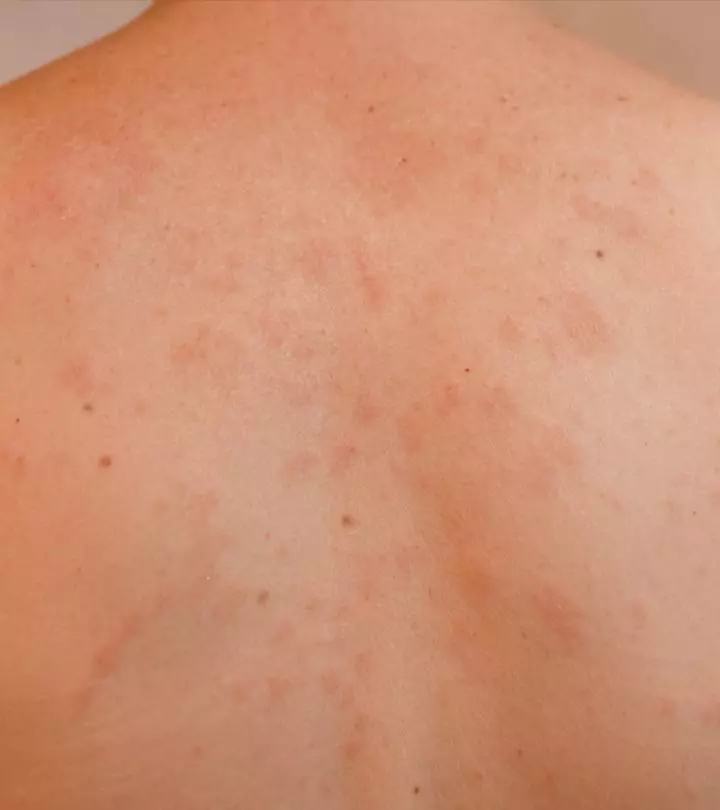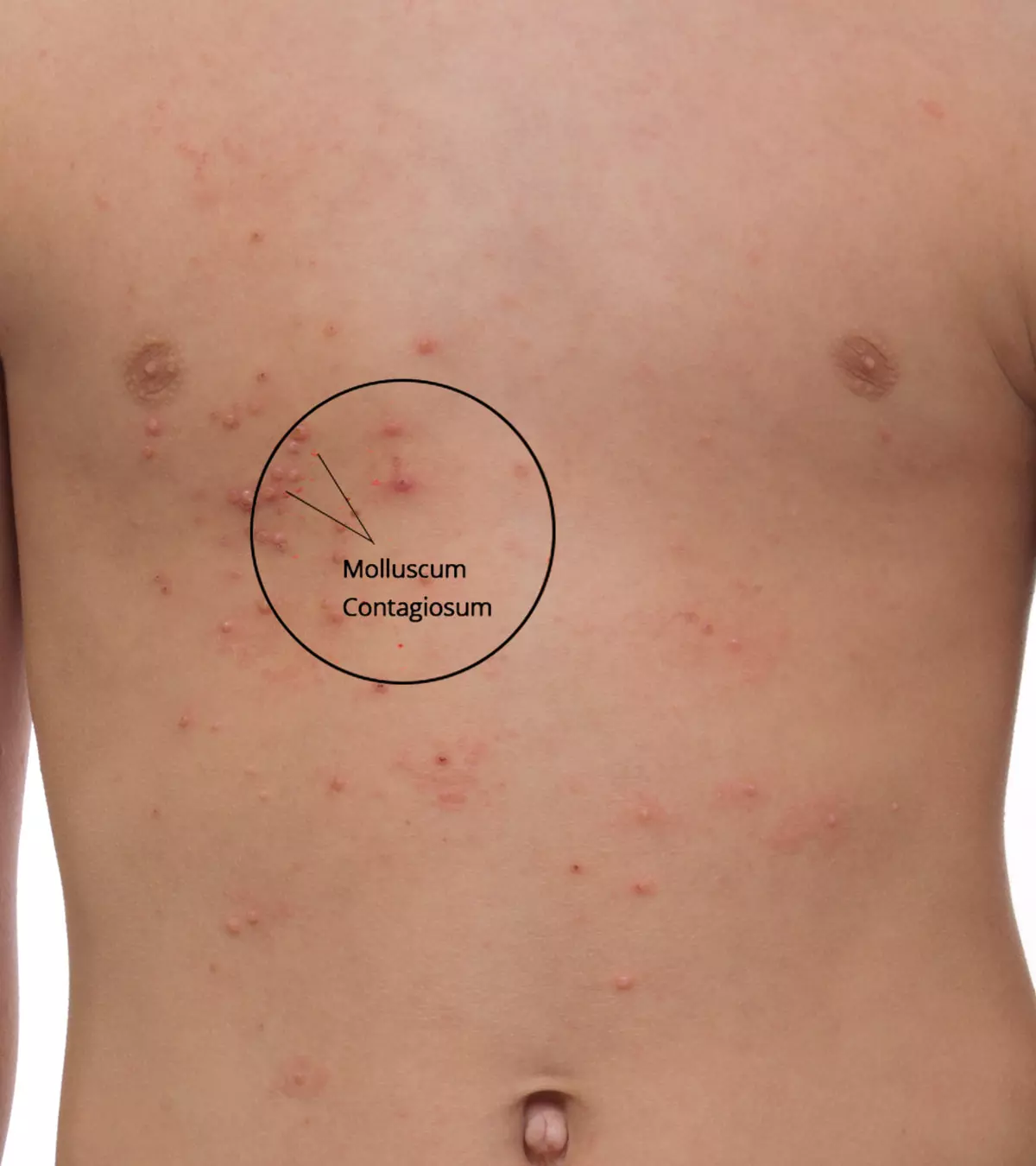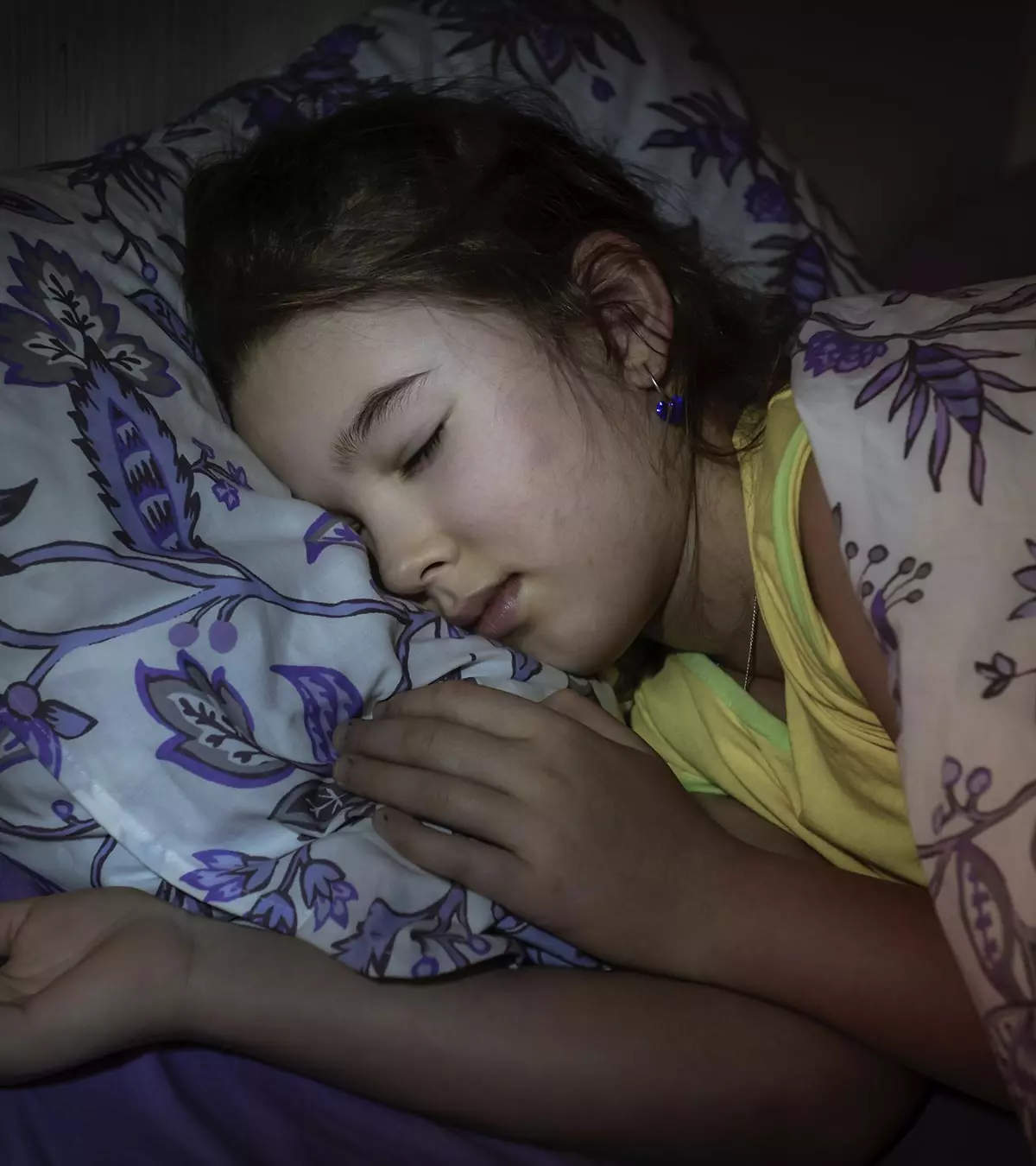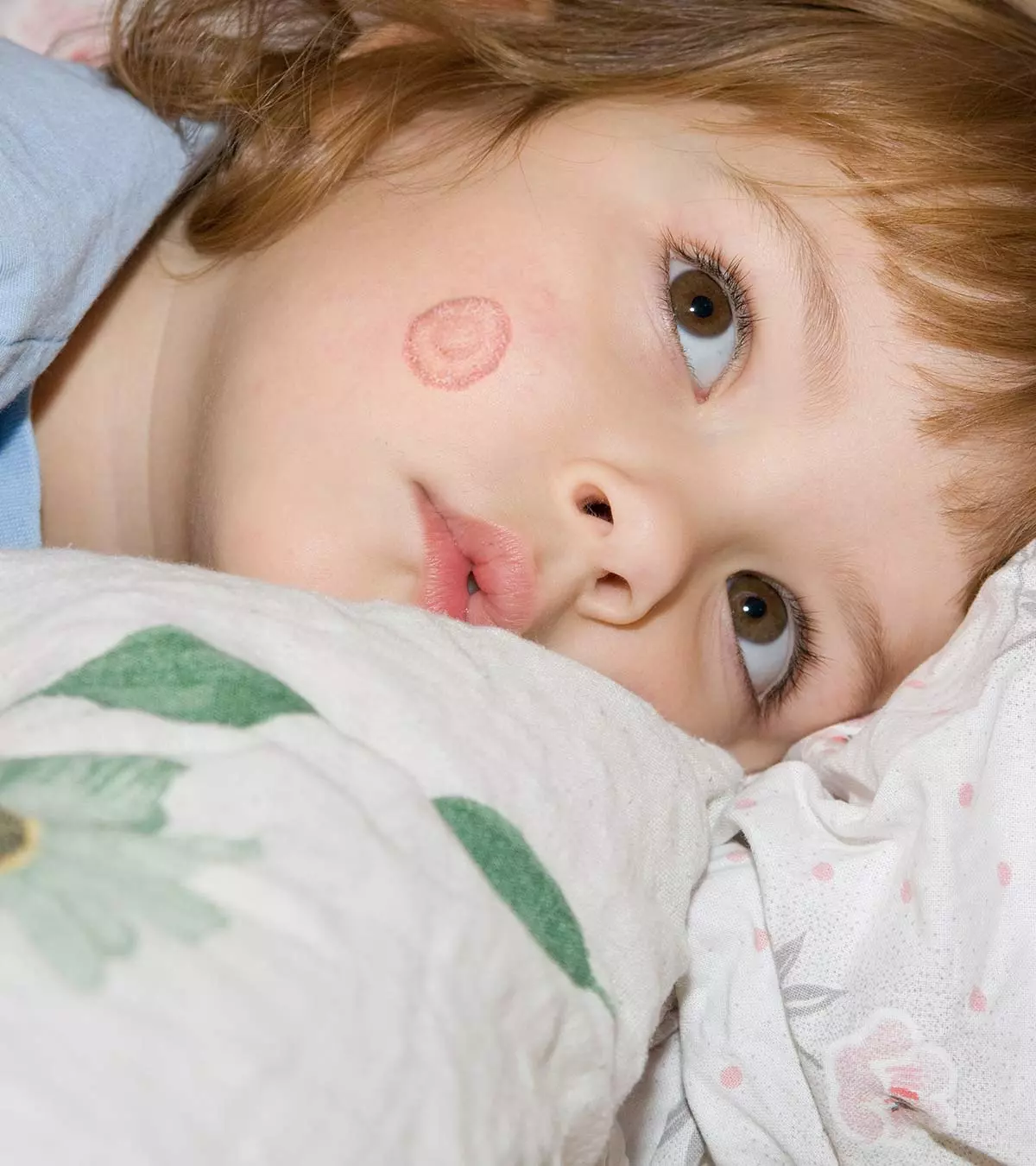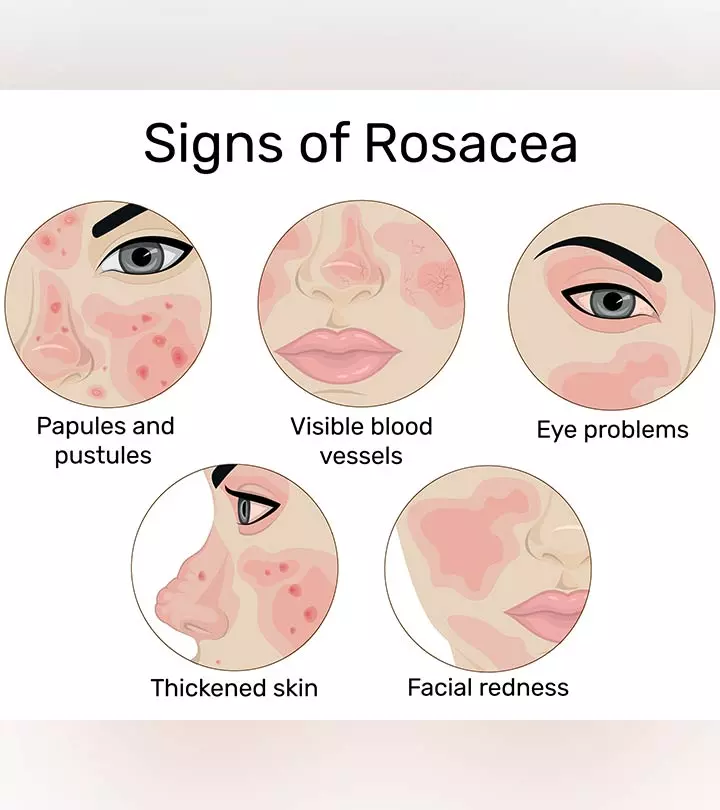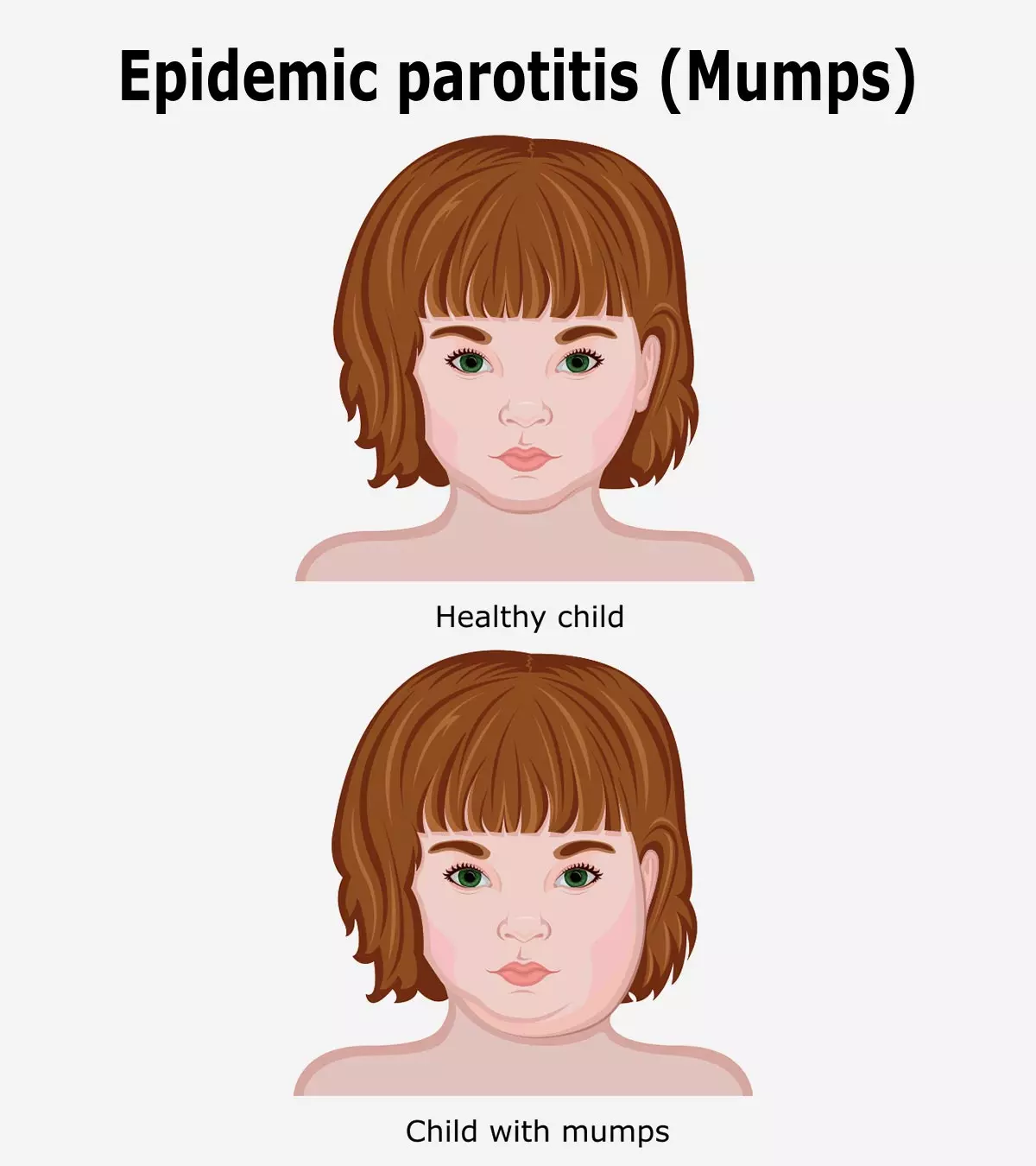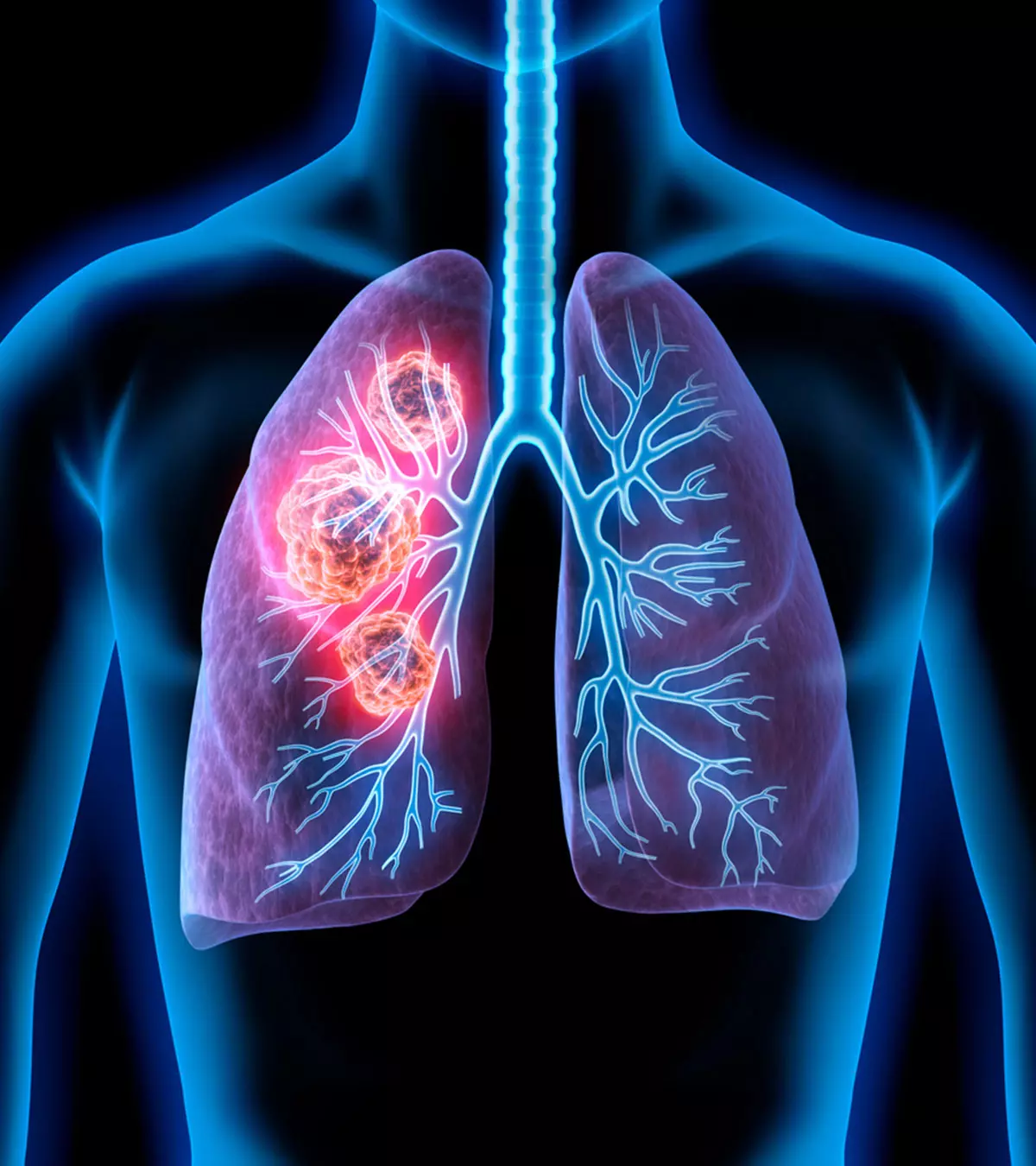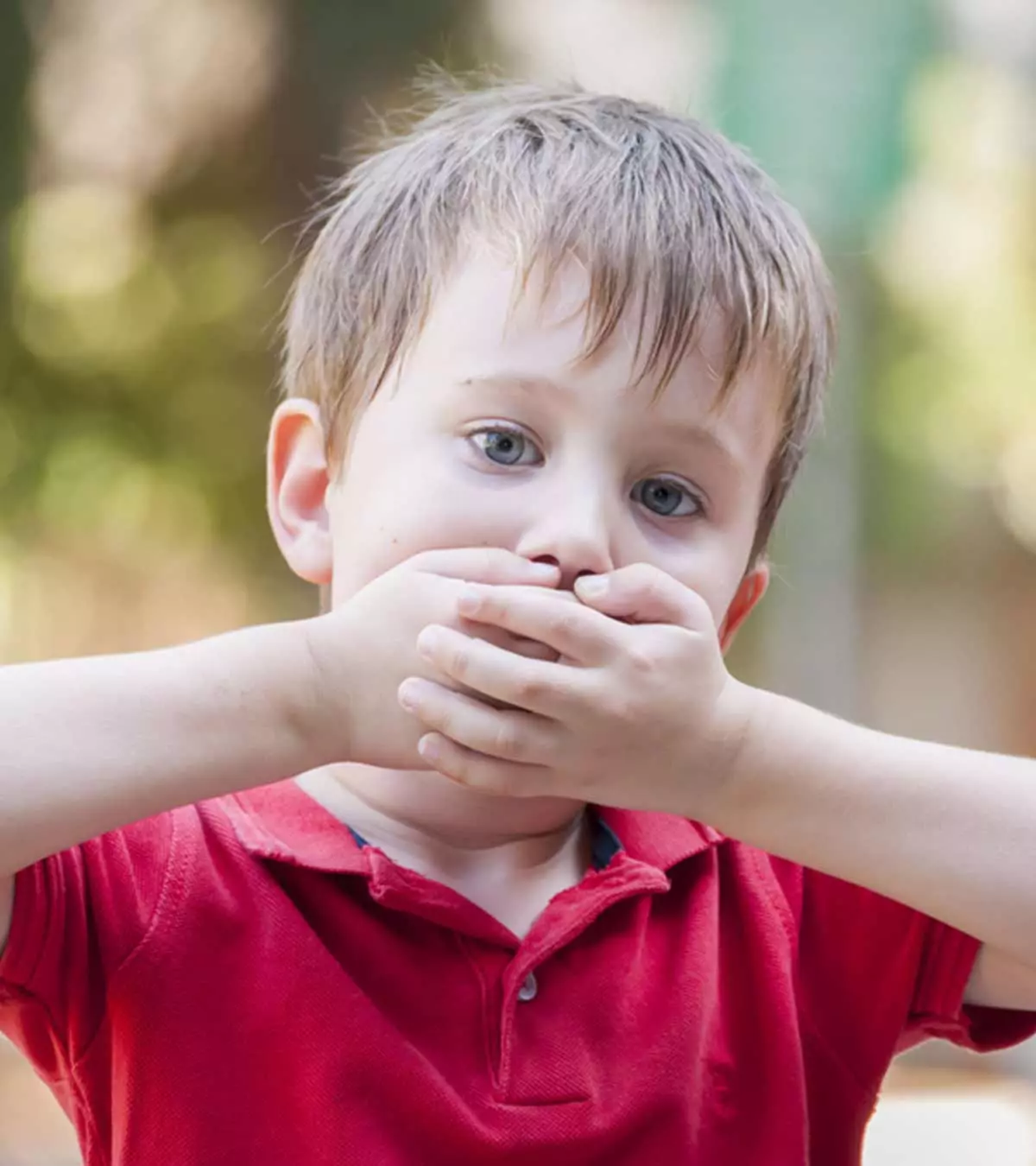
Image: ShutterStock
Hiccups are innate, involuntary reflexes that could begin in the womb at just nine weeks of gestational ageiCalculated from the last menstrual cycle to the current date in weeks (1). Though they aren’t a cause for worry, hiccups in kids can be bothersome since they can disrupt what they are doing and make them fussy and irritable.
Hiccups are caused by the contraction of the diaphragm, the dome-shaped muscle located below the lungs. They are generally self-limiting and resolve on their own in a few minutes (2). However, though adults may wait for a hiccup episode to pass, children may become impatient. Hence, parents need to know some remedies for managing hiccups quickly. If your child is prone to frequent bouts of hiccups, continue reading.
This post tells you about types of hiccups, their causes, and home remedies that could help manage hiccups in children.
Key Pointers
- Hiccups in children are common and are believed to aid in breathing regulation.
- Children may experience hiccups due to acid refluxes, stress, or eating something spicy.
- If hiccups persist longer than usual or are accompanied by abnormal weight loss, it can indicate an underlying issue.
- Certain home remedies such as drinking water slowly or sucking on a lemon may help cope.
Are Hiccups Good Or Bad?

Hiccups are pretty common in children and shouldn’t be a cause for concern. A recent study on newborns published in the journal Clinical Neurophysiology suggests hiccups may promote brain development and help regulate breathing (1) (3). The researchers believe that the hiccups trigger brain signals that help babies learn how to regulate their breathing.
Kimberley Whitehead, the research associate at the UCL Neuroscience, Physiology & Pharmacology Department, says, “The reasons for why we hiccup are not entirely clear, but there may be a developmental reason, given that foetuses and newborn babies hiccup so frequently (1).”
However, persistent hiccups could indicate an underlying disorder. If hiccups affect the child’s ability to eat, breathe, or sleep, consult a doctor.
Types Of Hiccups
Hiccups can be classified into three types based on the duration of each episode (2) (4).
- Hiccups that last for a few seconds or minutes are called transient hiccups.
- Those that linger for 48 hours to one month are termed persistent hiccups.
- Hiccups that last for more than a month are termed intractable hiccups. This type of hiccups is rare and usually seen only in adults.
Persistent and retractable hiccups can lead to certain complications and affect the child’s quality of life (5).
Causes Of Hiccups In Children

The following are some of the most common triggers of childhood hiccups (6) (7) (8):
- Eating or drinking too much
- Eating or drinking too fast
- Eating spicy foods
- Drinking carbonated drinks
- Drinking ice-cold water or very hot water/ beverages alternately
- Indigestion
- Stress
- Bad odors
Besides these common causes, hiccups can also be triggered by
- GERD (gastroesophageal reflux diseaseiA disorder in which the stomach contents move up into the mouth ) wherein the stomach fluids flow back up into the esophagus (9).
- Strong emotions, such as excessive excitement.
- Over tiredness.
In some extremely rare cases, hiccups are a symptom of an underlying health condition that affects the esophagus, lungs, brain, or stomach (5). Specifically, persistent hiccups may occur due to several medical conditions, including head trauma, meningitis, goiter, neck cyst or other tumor, thoracic disorders, and even in case of psychogenic conditions like anorexia and stress. Hiccups can also be caused by a side effect of surgery or certain medication (2). Hiccups due to these factors could prolong for a longer duration and can disrupt the child’s everyday activities.
When To See A Doctor?
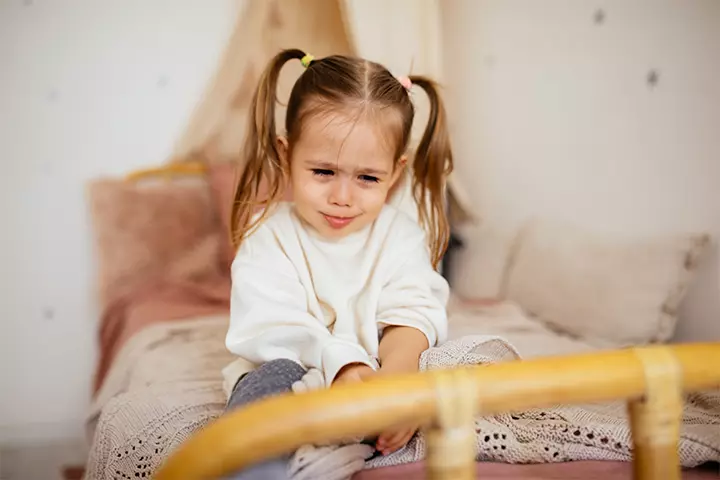
If you notice any of the following conditions in your child, consider it serious enough to warrant a visit to the health care provider.
- If a bout of hiccups stays for longer than 24 hours (10), and it upsets your child or interferes with their everyday activities, talk to a doctor and learn ways to handle it.
- If the hiccups last longer than 48 hours, you should see a doctor (11).
- Intractable hiccups in infants or toddlers that last more than a month are uncommon, so if your child experiences it, visiting the doctor is a must (2).
- If the child has difficulty breathing or has severe discomfort during hiccups.
- If the child shows other symptoms with hiccups, such as being fussy and arching their back after feeding (12).
- See a doctor if you notice drastic weight loss in the child or insomniaiA sleep disorder characterized by difficulty falling asleep and staying asleep that you believe is connected to hiccups.
Make a note of any other symptoms that the child may exhibit. If your child is on medication for any other conditions, do mention that to the doctor. Uncontrolled hiccups can be a symptom of some serious ailments, a side effect of some kinds of medications, and also an indicator of a foreign object in the ear (2).
How To Stop Hiccups In Kids?
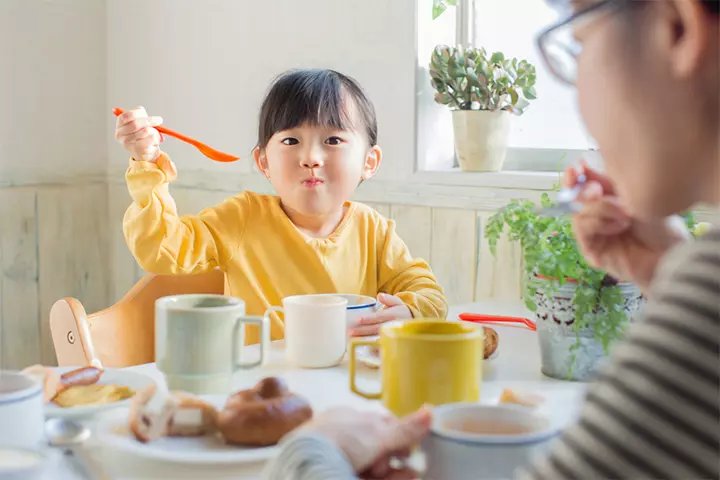
You can prevent frequent hiccups in your child by taking a few simple steps. Note that these steps are generally recommended for shortening bouts of transient hiccups and not for treating persistent and intractable hiccups (2) (10) (11).
- Ensure the child does not gulp down food too fast.
- Teach the child to chew well before swallowing.
- Tell them to sip drinks slowly.
- Teach your child the habit of drinking straight from a glass
- Avoid using straws.
- Avoid overly spicy foods.
- Prevent your child from eating very hot and very cold foods alternatively.
- Avoid overfeeding your child, and if they are old enough to eat on their own, ensure they do not overeat.
- Encourage the child to eat small portions of food at a time.
- Avoid giving food that is too hot or too cold.
- Help your child manage emotional stress and over-excitement.
Different people handle hiccups in different ways. If you are outside and are caught unawares, you can ask your child to try any of the following ways to manage hiccups:
- Drink a glass of water
- Hold their breath for as long as they can
Sharing cures of hiccups she learned during her childhood, a blogger named Krimsh says, “I was in senior high school when I learned this hiccup cure. I have two friends. One of them, the one sitting at the middle, had a hiccup attack. I was laughing at her (mean me). The other girl said that the hiccup will stop with tickling so the two of us tickled her. I was surprised that it actually worked.” She further adds, “The same girl who had a hiccup attack was the one who told me that hiccup can also be cured by holding your breath. I do this when I am having hiccup and no one’s there to tickle me. I do it for 5 to 10 seconds. Sometimes, I need to repeat it. Well, yes, it is not 100% effective (i).”
- Breathe into a paper bag. Note that they should only use a paper bag and avoid plastic bags
- Take slow, measured breaths
- Ask them to put their head in between their knees, as far as they reach, to put pressure on the diaphragm.
- Try to distract them
You could also startle the child or give them a fright. Take care not to traumatize the child. The goal is to surprise them so that they get distracted from the hiccups. Some parents tickle the little ones instead of giving them a fright, which could be effective too. Ameera Nauman, MD, a pediatrician at the OSF Medical Group, talks about how to prevent hiccups in kids. She says, “With older kids, keep them from overeating, and don’t let them eat or drink too fast.” She further adds, “A lot of times, you can stop the hiccups by distracting the child, getting their mind on something else. I usually recommend something mild, like drinking a glass of cold water. If the child is a little older, you can try having them hold their breath and count to 10, or maybe put some sugar under their tongue (12).”
 Quick tip
Quick tipHome Remedies For Hiccups In Children
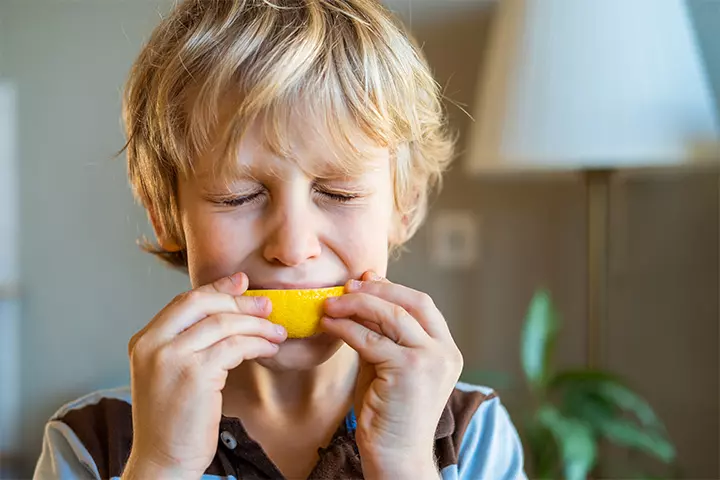
Hiccups in children are such a common occurrence that experienced parents usually have home remedies at hand. These simple, safe treatments for hiccups can help you soothe the child and avoid doctor visits unless it is a case of persistent or intractable hiccups (10) (11).
- Put something sour, such as a slice of lemon, in the child’s mouth and ask them to suck it.
 Quick tip
Quick tip- Put sugar under the tongue. Instruct the child to leave it for five to ten seconds before swallowing it. Other sweet foods, such as peanut butter or honey, are also found to work well in some cases.
- Let the child drink something hot or cold. This helps if the bout of hiccups has been triggered by a drastic change in the stomach temperature.
- Let them drink water slowly
- Let them sip on ice water or gargle with it.
- Give them ice chips.
- A gentle massage on the child’s upper stomach is also a good option. Remember to move your fingers in downward movements and be very careful not to hurt the child by pressing too hard.
- Drinking fennel, peppermint, or chamomile teaiMade from the chamomile flower and is used for treating anxiety and insomnia works well with muscle spasms. Use a dropper to put the drink into your young child’s mouth.
- Get the child to gargle ice-cold water for half a minute. If the hiccups persist after one round, the child can repeat this.
Frequently Asked Questions
1. What happens when a child hiccups?
During hiccups, the diaphragm closes and is immediately followed by laryngeal closureiA procedure to block the entrance of food into the lungs and larynx or the voice box . This causes a sudden rush of air into the lungs. It makes a “hic” sound since the vocal cords are closed now (13).
2. Are frequent hiccups a symptom of anything in children?
Frequent hiccups can be a symptom of brain lesions, liver and kidney problems, tumors, intestinal diseases, or uremic poisoningiA disorder leading to the presence of too much waste in the blood due to kidney dysfunction . It can also be due to unknown resins or irritation due to surgeries or drugs (14).
3. Is it normal for children to get hiccups multiple times a day?
Children can get hiccups multiple times a day due to various reasons. This can be due to an underlying condition, overeating, or eating too fast (12).
4. What causes random occasional single hiccups in children?
Minor irritations can cause an occasional single hiccup in children. Single hiccups can be associated with strong emotions or eating or drinking. This may also occur without any obvious reasons (8).
5. Do hiccups mean children are growing?
Hiccups are not an indicator of growth in children. Some anecdotal beliefs from the past say hiccups mean a growth spurt in children, but these are not true (15).
6. Are hiccups caused by anxiety?
Dr. Emily Spaeth, neonatal physical therapist from Portland, Oregon, says, “There are many reasons the diaphragm will spasm and cause hiccups. One reason is when we get full or swallow a little air, but hiccups can also be caused by stress, especially in newborns.”
Hiccups in kids are common. Eating or drinking too much or too fast, eating spicy foods, and indigestion in children are some of the common causes. Unless hiccups are occasional and brief, they aren’t a cause for concern. However, consulting a doctor is preeminent if hiccups are becoming too frequent and interfering with your child’s daily activities. Sucking something sour, such as a lemon slice, drinking something hot or cold, and gently massaging your child’s stomach are a few ways to relieve your child from transient hiccups.
Infographic: Questions To Expect At The Doctor’s Visit
Hiccups in children may seldom be a concern. But if it interferes with your child’s daily activities and causes discomfort, you must take them to the pediatrician. This infographic will help you prepare for the doctor’s visit by filling you in on the common questions you may be asked. Take notes and prepare the answers for an accurate and smooth diagnosis. Illustration: Momjunction Design Team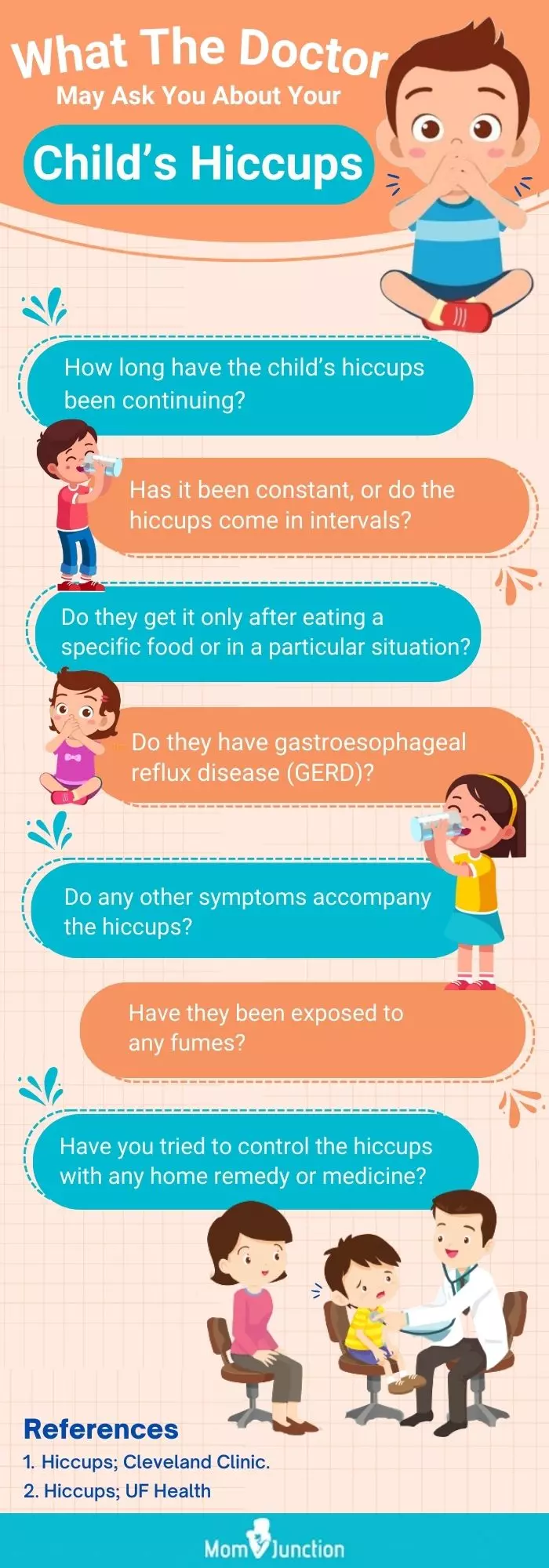
Personal Experience: Source
MomJunction articles include first-hand experiences to provide you with better insights through real-life narratives. Here are the sources of personal accounts referenced in this article.
i. How to Stop Hiccup;https://krimsh.wordpress.com/2006/09/08/how-to-stop-hiccup/
References
1. Newborn baby hiccups could be key to brain development; American Association for the Advancement of Science (AAAS)
2. Juan Brañuelas Quiroga, José Urbano García, and Julio Bolaños Guedes; Hiccups: a common problem with some unusual causes and cures; British Journal of General Practice (2016).
3. Kimberley Whitehead, et al.; Event-related potentials following contraction of respiratory muscles in pre-term and full-term infants;; Clinical Neurophysiology (2019).
4. Ju Hwan Lee, et al.; Treatment of Intractable Hiccups With an Oral Agent Monotherapy of Baclofen -A Case Report-; The Korean Journal of Pain (2010).
5. Chronic hiccups; Genetic and Rare Diseases Information Center (GARD)
6. What causes hiccups?; Harvard Health Publishing
7. Hiccups; BetterHealth Channel
8. Hiccups; NHS
9. GERD (Gastroesophageal Reflux Disease) in Children; John’s Hopkins Medicine
10. Hiccups in Children: Care Instructions; Kaiser Permanente
11. Hiccups; Cleveland Clinic
12. Child hiccups are seldom cause for alarm; OSF Healthcare
13. Full-Young Chang and Ching-Liang Lu; Hiccup: Mystery, Nature and Treatment; National Library of Medicine (2012)
14. Hiccups, Chronic; National Organization For Rare Disorders
15. Why Do You Get Hiccups? (And How to Stop Them); Cleveland Clinic
Community Experiences
Join the conversation and become a part of our nurturing community! Share your stories, experiences, and insights to connect with fellow parents.
Read full bio of Dr. Anuradha Bansal
- Dr. Emily Spaeth is a neonatal physical therapist and lactation consultant with 5 years of experience. A graduate from Samuel Merritt University, she supports birthing bodies and their babies through her business, Be Well Baby PDX.
 Dr. Emily Spaeth is a neonatal physical therapist and lactation consultant with 5 years of experience. A graduate from Samuel Merritt University, she supports birthing bodies and their babies through her business, Be Well Baby PDX.
Dr. Emily Spaeth is a neonatal physical therapist and lactation consultant with 5 years of experience. A graduate from Samuel Merritt University, she supports birthing bodies and their babies through her business, Be Well Baby PDX.
Read full bio of Dr. Ritika Shah
Read full bio of Rebecca Malachi
Read full bio of Shinta Liz Sunny






